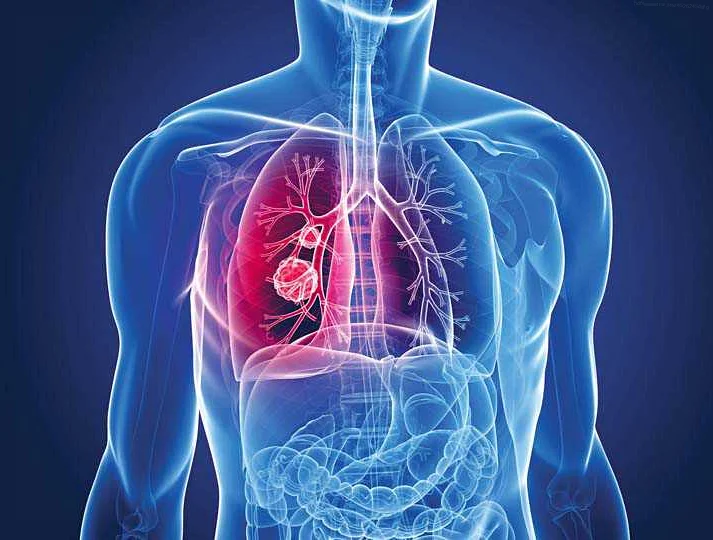Ministry of Health: Smoking increases the risk of getting tuberculosis
Содержимое
Learn about the Ministry of Health’s findings on the link between smoking and tuberculosis. Discover the increased risk smokers face and how quitting smoking can help prevent this deadly disease.
Tuberculosis (TB) is a serious infectious disease that continues to be a major public health issue worldwide. The Ministry of Health is deeply concerned about the increasing number of TB cases and is actively working to raise awareness about the risk factors associated with this disease. Recent studies have revealed a strong link between smoking and the incidence of TB, highlighting the need for urgent action to address this issue.
Smoking has long been recognized as a leading cause of preventable diseases, such as lung cancer and heart disease. However, the connection between smoking and TB has received less attention until now. Research has shown that smokers are at a significantly higher risk of developing TB compared to non-smokers. This alarming finding underscores the importance of tackling smoking as a key preventive measure in the fight against TB.
There are several reasons why smoking increases the risk of TB. Firstly, smoking weakens the immune system, making it harder for the body to fight off infections, including TB. Secondly, smoking damages the respiratory system, impairing the lungs’ ability to clear bacteria and other harmful substances. Finally, smokers often live in environments with poor ventilation, which can facilitate the spread of TB bacteria.
The Ministry of Health is committed to implementing comprehensive tobacco control measures to reduce the incidence of TB among smokers. These measures include increasing public awareness about the dangers of smoking, providing smoking cessation programs and support, and enforcing strict regulations to restrict tobacco use in public places. By targeting the root cause of the problem, we can make significant progress in reducing the burden of TB and improving the overall health of our population.
The Link Between Smoking and Tuberculosis

Smoking is a major risk factor for tuberculosis (TB), a highly infectious disease that primarily affects the lungs. There is a strong correlation between smoking and the development of TB, with smokers being at a significantly higher risk of contracting the disease compared to non-smokers.
Studies have shown that smokers are more likely to be infected with the bacteria that cause TB and have a higher chance of developing active TB disease. The harmful chemicals in tobacco smoke weaken the immune system, making it harder for the body to fight off the Mycobacterium tuberculosis bacteria.
In addition to increasing the risk of TB infection, smoking also worsens the prognosis for TB patients. Smokers with TB are more likely to experience severe symptoms and have a higher mortality rate compared to non-smokers with TB. The combination of smoking and TB can lead to a faster progression of the disease and make it more difficult to treat.
Furthermore, smoking can increase the risk of TB transmission to others. When smokers cough or exhale smoke, they release respiratory droplets that can contain the bacteria that cause TB. These droplets can be inhaled by others, potentially leading to new infections.
It is crucial for individuals to understand the strong link between smoking and tuberculosis and the detrimental effects that smoking can have on TB prevention, treatment, and transmission. Quitting smoking not only reduces the risk of developing TB but also improves the chances of successful treatment for those already infected.
| • Smoking increases the risk of tuberculosis infection and the development of active TB disease. |
| • Smokers with TB have a worse prognosis and are at a higher risk of mortality compared to non-smokers with TB. |
| • Smoking can increase the transmission of TB to others. |
| • Quitting smoking is crucial for TB prevention, treatment, and reducing the overall burden of the disease. |
Smoking and the Development of Tuberculosis
Tuberculosis (TB) is a highly contagious respiratory disease that affects millions of people worldwide. It is caused by the bacterium Mycobacterium tuberculosis, which primarily affects the lungs. While TB can be transmitted through the air when an infected person coughs or sneezes, there are also other factors that can increase the risk of developing the disease.
One such factor is smoking. Numerous studies have shown a strong link between smoking and the development of tuberculosis. Smoking weakens the immune system, making individuals more vulnerable to infections, including TB. It damages the cilia in the lungs, which are responsible for clearing foreign particles and bacteria, making it easier for the TB bacteria to settle and multiply.
Furthermore, smoking impairs the functioning of certain immune cells called macrophages, which play a crucial role in fighting off TB bacteria. These cells are responsible for engulfing and killing the bacteria, but smoking decreases their ability to do so effectively. As a result, smokers are more likely to develop active tuberculosis and have a higher risk of developing severe forms of the disease.
Smoking also affects the effectiveness of TB treatment. Studies have shown that smokers require longer treatment durations and are more likely to experience treatment failure or relapse. This is because smoking reduces the efficacy of TB medications and hampers the immune response needed to eliminate the bacteria.
It is essential for individuals to be aware of the link between smoking and tuberculosis and take steps to quit smoking, especially if they have been exposed to TB or are at a higher risk due to other factors. By quitting smoking, individuals can significantly reduce their risk of developing TB and improve their overall health.
In conclusion, smoking increases the risk of developing tuberculosis by weakening the immune system, damaging the lungs, and impairing the functioning of crucial immune cells. Quitting smoking is crucial in reducing the risk of TB and improving treatment outcomes for those already affected.
The Impact of Smoking on TB Treatment

Smoking and tuberculosis (TB) are two major public health concerns worldwide. While TB is a highly contagious respiratory disease caused by the Mycobacterium tuberculosis bacterium, smoking has been proven to weaken the immune system and increase the risk of developing various respiratory diseases.
When it comes to TB treatment, smoking has a significant impact on the effectiveness of medication and the overall recovery process. Research has shown that individuals who smoke while undergoing TB treatment experience slower healing rates and higher rates of treatment failure.
Smoking interferes with the body’s ability to fight off TB infection and hampers the effectiveness of antibiotics used to treat the disease. The toxic chemicals present in cigarette smoke damage the lungs, making them more susceptible to infections and impairing the immune system’s response to the TB bacteria.
Furthermore, smoking reduces the efficacy of TB medication. The chemicals in cigarettes can alter the metabolism of certain drugs, leading to lower drug concentration levels in the bloodstream. This can result in suboptimal therapeutic levels, making it more difficult to eradicate the TB bacteria.
Smokers also have higher rates of treatment non-adherence compared to non-smokers. The addictive nature of nicotine makes it challenging for individuals to quit smoking, even during TB treatment. This lack of adherence to both medication and smoking cessation efforts hinders the successful outcome of TB treatment, leading to prolonged illness and increased transmission rates.
In conclusion, smoking significantly hampers the effectiveness of TB treatment. It weakens the immune system, damages the lungs, and interferes with the efficacy of medication. To ensure successful recovery from TB, it is crucial for individuals to quit smoking and adhere to their prescribed treatment plan. Public health initiatives should prioritize addressing smoking cessation within the context of TB control programs to improve treatment outcomes and reduce the overall burden of TB worldwide.
Risk Factors: Smoking and TB

Introduction:
Tuberculosis (TB) is a highly infectious disease that primarily affects the lungs. It is caused by the bacterium Mycobacterium tuberculosis and can spread from person to person through the air. While anyone can get TB, certain risk factors increase the likelihood of infection and development of the disease.
Smoking and TB:
Smoking is a major risk factor for TB. It weakens the immune system and damages the lungs, making individuals more susceptible to infection. Studies have shown that smokers are at a higher risk of acquiring TB and also have a higher risk of experiencing worse outcomes if they develop the disease.
When a smoker inhales tobacco smoke, it damages the cilia in the airways, which are responsible for clearing mucus and foreign particles. This makes it easier for TB bacteria to penetrate the respiratory system and establish an infection. Smoking also impairs the function of immune cells, such as macrophages, which are crucial for defending against TB bacteria.
The Link between Smoking and Treatment:
Smoking can also hinder the effectiveness of TB treatment. The chemicals in tobacco smoke can interfere with the action of anti-TB drugs, reducing their efficacy. This can lead to prolonged treatment periods and an increased risk of drug resistance.
Stopping Smoking:
Quitting smoking can greatly reduce the risk of TB and improve treatment outcomes for those already infected. Smokers who quit experience improvements in lung function and immune response, making them better equipped to fend off TB infections. It is essential for smokers with TB to quit smoking to enhance their chances of successfully recovering from the disease.
Health professionals should provide support and resources to help individuals quit smoking and prevent the development of TB. This includes counseling, nicotine replacement therapies, and access to cessation programs and support groups.
Conclusion:
Smoking is a significant risk factor for TB, increasing the likelihood of infection and hindering treatment outcomes. Quitting smoking can reduce the risk of TB and improve overall health. Public health efforts should focus on educating individuals about the dangers of smoking and providing resources to help them quit.